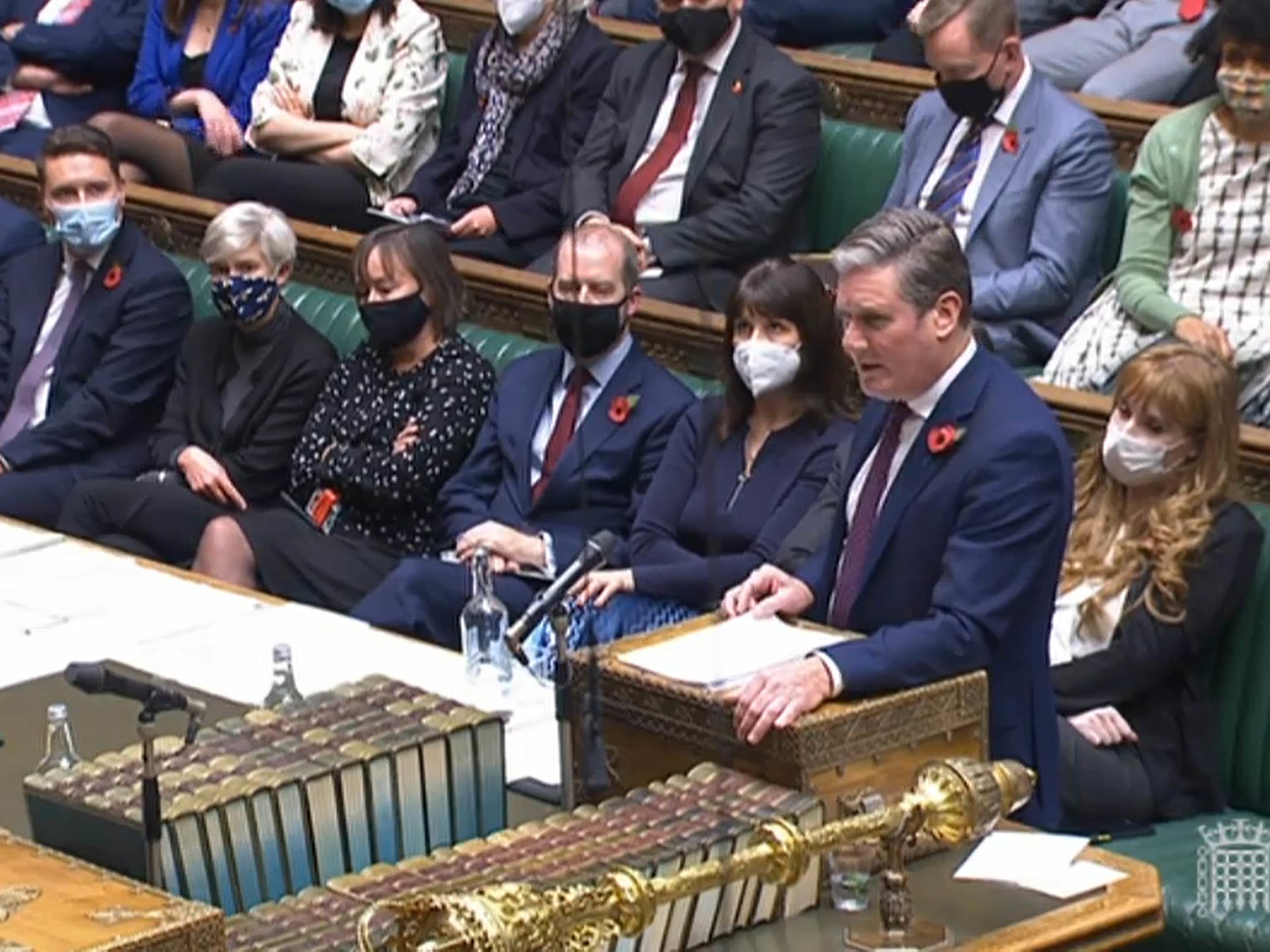Keir Starmer has slipped up in his assault on Tory ethical standards
The Labour leader should have focused on Tory rule-dodging rather than blundering into a minefield over MPs’ second jobs, writes John Rentoul


The problem with a hasty retreat is that if a politician changes from the wrong position to the right position, their opponents can shout about a U-turn as much as they like, but there is nowhere for the story to go.
The reason Boris Johnson reversed his decision to try to block Owen Paterson’s suspension was that it was a terrible idea and it would make him unpopular. Now he is not trying to pursue that terrible idea and, although he is unpopular, he is not as unpopular as he would have been if he had ploughed ahead with it.
This leaves Keir Starmer with a problem of how to drive home his advantage. The Labour leader could go on about how the prime minister’s first instinct was to do the wrong thing, as it was when Johnson and Rishi Sunak were “pinged” in July and thought they could get out of having to isolate.
He could point out how long it took to get the facts into the public domain about who paid for the redecoration of the prime minister’s Downing Street flat, and that Johnson is still trying to resist further questions about the potential conflict of interest involved.
He could demand that the prime minister declare his holiday at the Goldsmith family’s villa in Spain in the register of members’ interests, instead of claiming that a more limited declaration in the list of ministers’ interests is sufficient.
He could widen his assault and draw attention to all the other Conservative MPs who have fallen foul of the rules and who voted with the prime minister to change the “current standards system”. He could even offer Labour’s support for changes that would strengthen the independence of bodies enforcing standards rules – and end, for instance, the requirement that any punishment for breaking the rules be voted on by MPs, which is how the Paterson imbroglio began.
Starmer did some of this in his speech in the Commons yesterday, but he made the mistake of making a big issue of the wrong question – MPs’ second jobs. It seemed to make sense, because much of the problem in Paterson’s case and in the cases of several other Tory MPs is that they were paid large sums of money for “jobs” that appeared to consist of little more than advice. It is hard to police the boundary between advice and lobbying, which is a problem, because “consultancy” is allowed and “paid lobbying” is not.
The simple solution would be to ban MPs from earning any money apart from their salary as representatives of the people. Hence the fuss about Geoffrey Cox, the expensive barrister who has a sideline as the MP for Torridge and West Devon.
But Starmer is smart enough to realise that a blanket ban on outside earnings would prevent MPs such as Rosena Allin-Khan doing shifts as a doctor in her local hospital. So he demanded a ban on MPs taking “paid directorships and consultancy roles” instead.
Even this was a mistake, however. As Starmer’s Corbynite enemies have been pointing out for a while, the Labour leader’s own entry in the register of members’ interests is a problem. Alongside such worthy declarations as Starmer’s membership of the Youth Justice Legal Centre’s advisory board, and such relatively harmless declarations as two tickets from the Premier League to the Euros final (worth £1,628), it includes “payments for legal advice given before 2020” – that is, before he became Labour leader.
To keep up to speed with all the latest opinions and comment sign up to our free weekly Voices Dispatches newsletter by clicking here
Starmer’s legal work as an MP was not on the scale of Geoffrey Cox’s, but the principle is the same. The rules require him to declare such earnings so that we, the public, can judge whether there is a risk of a conflict of interest with his role as an MP. Yet the information he has declared is no good for this purpose. The most recent entries don’t even say which solicitors’ firms commissioned the advice, and none of the entries disclose the original client. Presumably this isn’t possible because of client confidentiality, yet without that information how can we know whether he faces a potential conflict of interest?
Equally, the most recent declaration, of £17,000 in August, must be about two years after the advice was given. Should such work not be declared when the advice is commissioned in expectation of a fee? Starmer has blundered into a minefield.
He has only himself to blame for enduring an awkward interview on Sky News yesterday, when Sam Coates, the deputy political editor, justifiably asked him about his legal work, and the discussions he had in 2017 about taking a consultancy role with Mishcon de Reya, the international law firm.
Starmer should have stayed off the subject of second jobs and focused his fire on ruthlessly strengthening the enforcement of the existing rules. That strategy would maximise the prime minister’s discomfort rather than his own.






Join our commenting forum
Join thought-provoking conversations, follow other Independent readers and see their replies
Comments